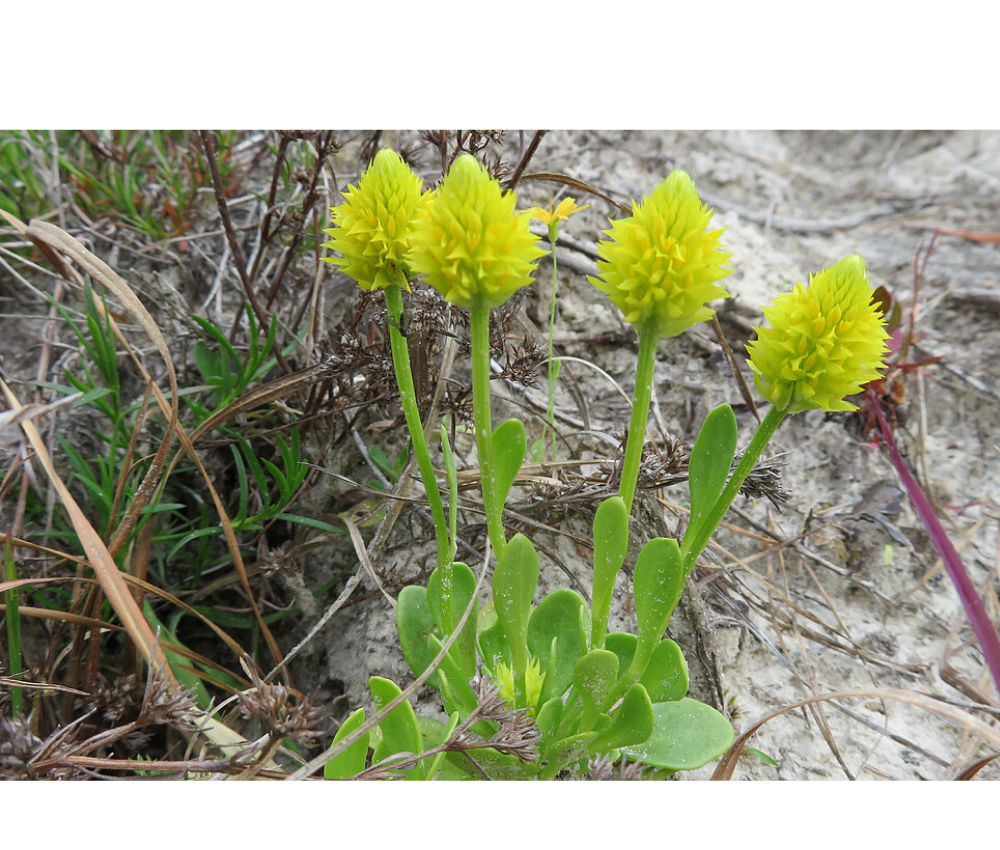
Sweet!
That’s apparently how ants feel about the candyroot plant (Polygala nana), a low-growing wildflower found throughout the South, from Texas to the Eastern Seaboard. No doubt the feeling is mutual.
Plants within the Milkwort family, like the candyroot, rely on ants to reproduce. An elaiosome, also known as an aril, a fleshy structure full of lipids and proteins, covers their seeds. The covering inhibits germination. Cue the ants. The insects march the seeds back to their colonies, eat the elaiosome, and discard the seed. Voila! The ants have succeeded in dispersing the seed and readying it for germination.

This system of seed dispersal by ant is known as myrmecochory, and a range of North American plants utilize it. Upon inspection of the 47 candyroot seed collection spots in our natural areas, only eight did not have a visible ant pile or ant activity nearby. Our conservation team got to see the ant-candyroot relationship up close — not in the field, but atop a desk, where a lone ant was discovered still lugging its seed!
We know many of you are at home right now. While people-centric activities are on hold, we encourage you to spend some time observing the natural world instead.
 About the Author
About the Author
Jennifer Reed is the Garden’s Editorial Director and a longtime Southwest Florida journalist.


